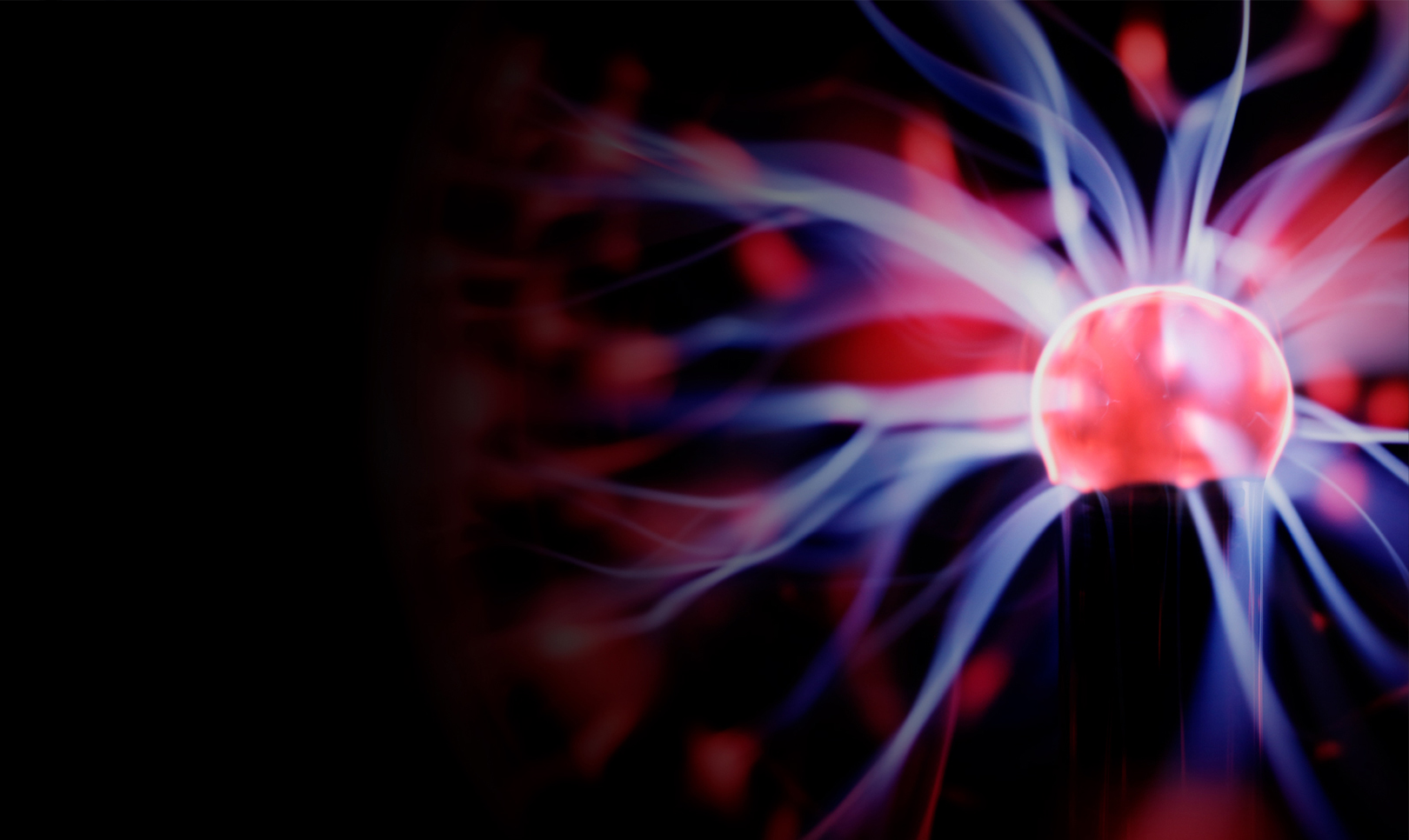The Covid-19 pandemic has become one of humanity’s greatest public health challenges of all time. In addition to the devastating effects of acute infection with the SARS-CoV-2 virus on physical health (mortality itself and post-infection physical comorbidities), other levels of human health have been jeopardized by the new disease. The effects of post-Covid-19 morbidity have been overwhelming on emotional, energetic, interpersonal, and economic health, among others, at both individual and collective levels.
Over the past two years, planet Earth has been experiencing a challenge of unprecedented proportions. The social, economic, political, and health repercussions are devastating. The pandemic has equalized creeds, races, and languages, breaking down all borders and subjecting the world’s nations to a common, invisible enemy: the infection known as Covid-19.
Despite all the technological advances and scientific knowledge, humanity was faced with an unprecedented scenario. Allied with the speed of propagation of a new disease in the globalized world and the speed and volume of (mis)information conveyed on social media, the context of the pandemic has shaken the modus operandi of our civilization, generating uncertainties regarding the future. However, like every crisis, this moment can be understood as an opportunity to question and change patterns, concepts, and lifestyles across the globe.
The Covid-19 pandemic has become one of humanity’s greatest public health challenges of all time. In addition to the devastating effects of acute infection with the SARS-CoV-2 virus on physical health (mortality itself and post-infection physical comorbidities), other levels of human health have been jeopardized by the new disease. The effects of post-Covid-19 morbidity have been overwhelming on emotional, energetic, interpersonal, and economic health, among others, at both individual and collective levels.
Thus, in my work as a health professional, I was able to observe what, in my practice as a physician and therapist, was already a pressing certainty: human health goes far beyond the merely physical aspect.
Keeping in mind, then, the daily challenges of the last two years, the question remains: if health is much more than just physical well-being (as pointed out by the WHO in 1948 – a concept that is currently being expanded, as we will see later), how can we take care of ourselves and help those we live with to maintain health and balance in the face of so many daily trials? How to help in acquiring and maintaining balance and well-being even amid so much turbulence?
How many times do we feel unable to effectively help these people, or even ourselves, in the face of the challenges posed by the current pandemic? Would there be tools available for care beyond those already known?
These questions and the possibility of helping humanity with effective therapeutic tools are the points I will address in this text.
A moment of individual and collective learning
Nowadays, it is impossible to find a person who has not fallen ill from SARS-CoV-2, who does not know someone who has been diagnosed with Covid-19, or who has not lost a loved one.
I can say, with even more certainty, that it is impossible that you have not known someone with depression, anxiety, stress, or chronic fatigue intensified by the challenges of “post-covid” humanity.
This is because the pandemic has caused a global increase in disorders such as depression and anxiety. According to research published in the scientific journal The Lancet, in October 2021, there were 53 million new cases of depression and 76 million new diagnoses of anxiety in 2020, an increase of 28% and 26% compared to the previous year, respectively.
It is necessary to admit, therefore, that new challenges require new postures and route reordering.
Magnetism, bioenergetics, hypnotherapy and neurolinguistic programming are examples of integrative therapeutic practices.

Being healthy even during illness: a new concept of health
Being and staying alive is a constant struggle for human beings: from birth, throughout our growth and development, and in our daily interpersonal relationships. In this perspective, with the modernization of science over the last century, it was recognized that there are diseases that have come to exist chronically. Thus, the most contemporary definition of health began to describe that illness can coexist with the state of health, surpassing the concept of “complete well-being” physically, mentally, and socially.
That is, I can be healthy even when I get sick! The human being, when taken care of in its integral aspect, can have emotional and energetic health, and live the fullness of his life even with the diagnosis of a physical pathology.
In this sense, the focus of care becomes the integral being. That is the human being considered and evaluated in their physical, mental, emotional, and spiritual instances, in their interrelationships and interactions with social, environmental, and behavioral factors, in a fluid and harmonious dynamic when healthy.
What does an integrative therapist do? What are your assignments?
“Therapy” derives from the term “ θεραπεία”, therapeúo, which means “to provide care, to treat”. The therapist is every professional trained in one or more areas of care related to human health, whether physical health or behavioral/psychological.
More specifically, the integrative therapist is the one who studies, exercises, and takes care of all the aspects that make up the integral human being. He is prepared to establish relationships between emotional states and energy exhaustion and understand the dynamics between behavior and the context of health or illness. This instrumentalization is built from the acquisition of knowledge in several areas.
However, this knowledge can be fragmented in their daily work if the professional does not have training that directs their gaze, interrelating complementary techniques with those of the physiology of the body and the mechanisms of the mind and behavior. Such knowledge will also not be fully applied if the professional does not know how to add different techniques to conventional health care.
The integrative therapist specializes in making therapeutic interventions in favor of targeting more health and well-being. In this way, it associates complementary techniques to support the treatment of signs and symptoms resulting from harmful emotional and energetic processes of the patient. Among the complementary and integrative techniques, the following can be used:
- mind/body techniques, such as mindfulness and others of a meditative nature;
- behavioral techniques such as neurolinguistic programming (NLP) and hypnosis;
- bioenergetic techniques, such as magnetism, bioenergy, reiki, etc.;
- natural medicine techniques, such as florals, and phytotherapy.
Anyone who proposes to be an integrative therapist may or may not be trained in conventional and academic specializations in the field of health (Medicine, Physiotherapy, Psychology, etc.). However, he should always base his care on this integrative view of the human being (body, mind, energy, and spirit), admitting that complementary techniques do not exclude support in conventional health. Both treatments go hand in hand, with professionals being the care coordinators, and the integrative therapist must optimize the action of conventional therapeutic indications with the help of natural techniques.
As natural therapies represent a return to ancient wisdom and were historically left aside throughout the Cartesian process of structuring traditional science, there is a tendency in academia to list natural and integrative techniques in the hall of “esoterism”. Despite this “prejudice” of the scientific community, integrative techniques are no less scientific or less effective. They are reproducible based on a methodology, and their effects can be measured with appropriate tools.
Therefore, those who work with complementary and integrative therapies need to be proficient in the technique, but also understand human physiology and anatomy, the ethical and legal aspects of their professional work, in addition to being a partner with other professionals in comprehensive patient care. In this way, the therapist will be able to understand where and how each technique works, realizing how such a resource can help the patient’s energetic, metabolic, emotional, and behavioral response, to expand the care network for the one who suffers and optimize the results. That is, those who do not study and deepen their skills become mere “repeaters” of the technique, just another “esoteric” professional.
The integrative therapist is the one who performs patient-centered care, respecting their autonomy, their life history, their preferences, their choices, and decisions. He is the partner in the path of rebalancing health and well-being, helping the individual to make healthier choices that are consistent with what he wants to achieve for himself in the process of reestablishing health.
This aspect is so important that it is worth emphasizing it. The practice of integrative therapy is based on accountability and individual empowerment, so that the patient no longer receives guidance and treatments passively and becomes the defining center of care behaviors, in partnership with his therapist.
Can integrative therapies be associated with medicine or traditional health care? Where to perform?
The integrative and complementary approach is exactly what the term defines: it takes care of aspects of the human being (mind, body, and spirit) through techniques that add up and enhance the results of conventional treatment.
The integrative and psychobioenergetic therapist, therefore, can work in their own office, in partnership with other professionals or companies, in voluntary work, or use their know-how as a tool for self-knowledge and help in the family or interpersonal relationships.
Why is a therapist with an integrative vision the ideal professional for the post-pandemic moment?
The pandemic has been challenging in multiple aspects of individual and collective life, demanding a different view of health/disease processes and comprehensive care. Thus, a change in the look and practice in the day-to-day of the caregiver, with multidisciplinary and transdisciplinary approaches, is fundamental to understanding the being in all its completeness and its needs. Focusing only on the physical sphere has become insufficient for a deep, effective therapeutic approach that provides the real feeling of being effectively cared for by the person seeking help.
As previously stated, every crisis also represents an opportunity for learning and growth. It is in this context that integrative therapies are inserted as an important complement to traditional health practices, not only expanding the care of those who wish to be assisted in their entirety but also providing opportunities for those who are interested to become professional therapists.
Therefore, an effective way to solve the current crisis becomes an expanded and integrative look at the being and the world. When we realize that personal health and well-being allow the individual to express their potential, we understand that social health, of humanity as a whole, can only exist when the individual being is in balance, able to contribute to the community in which he lives. insert.
This also occurs in professional activities in the area of health and care. A wide field for the growth and solidification of integrative practices then emerges.
Being an integrative therapist is caring for “human flourishing”. It is allowing the human being to flourish in a profusion of health, well-being, self-esteem, self-love, and self-care, even if, momentarily, the aridity of life’s problems tries to make it difficult for the light of the integral being to shine.
That is, the integrative therapist becomes a fundamental element of personal, individual, and collective dynamism, a true professional of the future.
Do you want to know more about integrative and psychobioenergetic therapies and become a trained professional? The Integrative and Psychobioenergetic Therapies Course is available to anyone interested.
Love yourself more and more! Come with me, let’s go together!
A hug from Dr. Ary Caldeira
Doctor Ary Caldeira (CRM_MG 45702) is a physician, acupuncturist, and therapist in psychobioenergetic integrative techniques. He works by uniting medicine and spirituality in his consultations, courses, and lectures. He uses NLP techniques, hypnosis, phytotherapy, florals, and anthroposophic medicine to help patients have more health and well-being. It addresses emotional, behavioral, and energetic issues as a strategy for empowering self-care. He is a professor of the Integrative and Psychobioenergetic Therapies Course.






